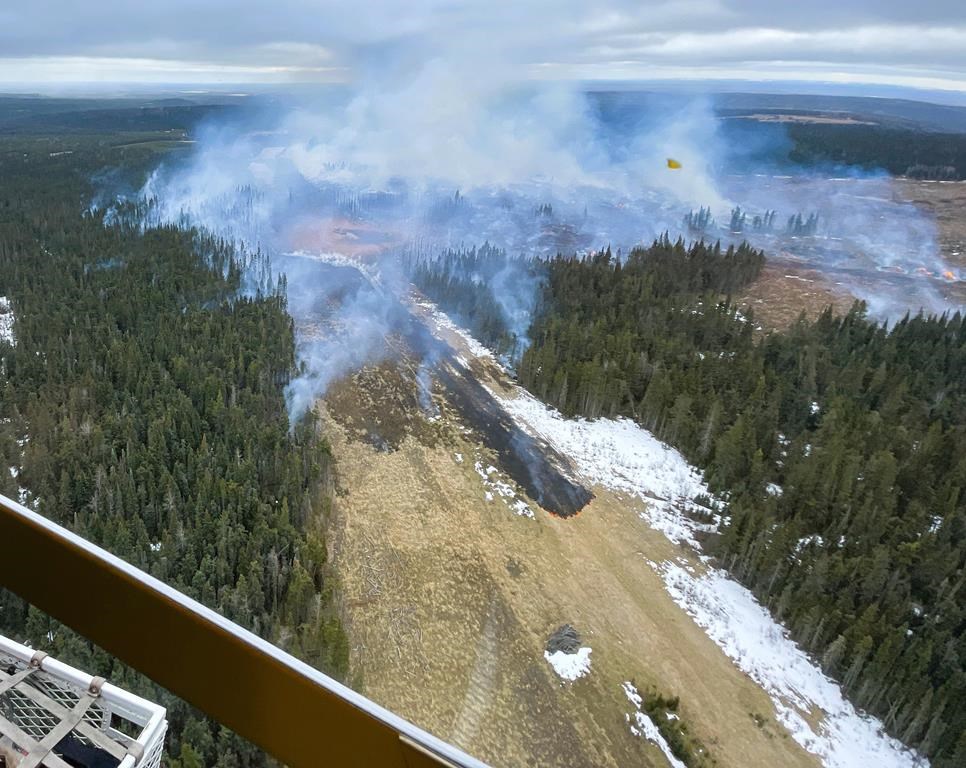More questions for companies connected to Humboldt crash; local drivers voice industry frustration
Posted Jun 13, 2018 5:08 pm.
Last Updated Jun 13, 2018 5:13 pm.
This article is more than 5 years old.
As the Alberta Government explains why a new registered company in Calgary connected to the one involved in the Humboldt Broncos bus crash is in operation, local drivers are expressing frustration regarding overall problems in their industry.
Alberta Transportation says one of the trucks and drivers listed from Calgary-based Adesh Deol Trucking Ltd. – which owned the truck involved in the April 6th crash – are operating with another numbered company.
“The only driver currently employed by the numbered company is not the driver who was involved in the Humboldt incident,” Alberta Transportation said in a statement.
RCMP are still investigating the crash more than two months later, but are preparing to talk to Crown prosecutors about potential charges.
While the government says it has done its due diligence in lifting the suspension against the numbered company back on June 1st, professional truckers in Calgary say there are more widespread problems that must be addressed.
“The public have no clue what the problem is, they’re just looking at the iceberg,” said Harry Dhillon, the senior instructor at Calgary’s Professional Truck Driving School. “There’s lots of people coming into Alberta from other provinces like Ontario and B.C. to get the license in from Alberta because it’s easier to get it.”
Dhillon points to a poor set of minimum standards in the province and that some instructors are getting certified having never driven a truck in their life.
“They’re not doing anything illegal, but it’s not quality training,” he said.
NEW COMPANY
The crash on April 6th near Tisdale, Saskatchewan killed 16 members of the Humboldt Broncos organization, including 10 players, as well as coaches and staff.
Five days later, the owner of Adesh Deol Trucking Ltd., Sukhmander Singh, told reporters the driver started working for him about a month before.
He said he and the driver – who remains unknown – were the only people working for the company, knew each other through their circle of friends and had checked his credentials before hiring him.
“I’m just sorry for everything,” he told the Canadian Press.
The second company was originally incorporated in late October of 2015, but was revived in April of this year after the crash.
It also received a Safety Fitness Certificate in early May, but due to the connection with Adesh Deol, Alberta Transportation immediately suspended the certificate.
“Once the carrier demonstrated that it was in compliance, Alberta Transportation had no legal grounds to maintain the suspension and the suspension was lifted on June 1, 2018,” the government says.
Alberta Transportation says it will closely monitor the carrier, having attached conditions to the certificate and will conduct a follow-up audit over the next three months.
Tom Straschnitzki, father of injured player Ryan Straschnitzki, responded online.
“Weird how Sask changed their rules right after accident. Alberta…..well you made money on the license,” he said on Twitter.
Ryan’s mother Kim also tweeted “Do we all look that stupid??”
And despite the suspension, CBC Saskatchewan reports Singh was attempting to recruit drivers on Kijiji to join the company run out of his home earlier this month, but eventually took down the add when questioned.
660 NEWS has reached out to Singh for comment, but has not received any response yet.
CALL FOR BETTER
Ontario recently became the first province to make truck-driving training mandatory, while it remains optional in other provinces, including Alberta.
Dhillon says as the government reviews training, there’s a lot of negligence that has to be corrected.
“It’s really sad to say, but there are industry members who do not follow procedures and who do not think that safety should be a first concern,” he said. “I think the government lacks employees, I think they need to hire more staff to monitor the facilities that train them and the examiners especially.”
At his school, Dhillon says all new drivers are different, but he has a minimum driving training requirement of 30 to 40 hours on average.
One of his veteran drivers, Stacy Hill, said there’s too many companies doing the bare minimum when it comes to meeting provincial requirements.
Another general problem in the industry he says is disproportionate driving standards among companies and how some are struggling to find talent to meet their requirements.
“We’re short five drivers right now,” he said. “We know of a large trucking company in southern Alberta, in two months, they lost 77 drivers because of the way the industry is going.”
“They’re spending too much time on the road and not being compensated for it correctly.”
Hill also there also has to be much more emphasis in training that driving a semi-trailer is unlike anything else on the road.
“That is a total animal unto itself,” he said. “The skill sets I possess to do that and do it efficiently, are dramatically and diametrically opposed to a driver, driving a commercial vehicle in a city.”
“You take city drivers and put them on the highway, you’re looking at huge risk, yet they’re still professional drivers and they still have the licensing,” he said.










